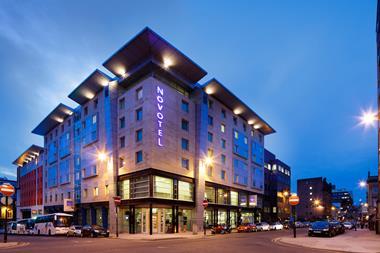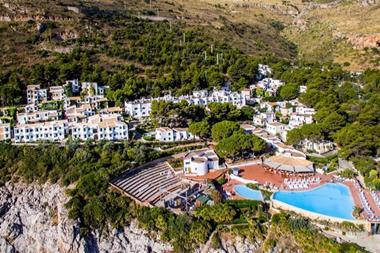Hospitality sector faces a challenge in integrating ESG factors into hotel valuations, hindering progress towards net-zero goals, writes Ross Petar
The tourism sector is responsible for 8% of the world’s carbon emissions, with hospitality constituting a significant part of this.

The hospitality sector therefore has an integral part to play in securing a net-zero carbon future and must drive forward towards this goal.
Whilst progress has been made in several areas, challenges remain. One notable challenge is that of integrating ESG into hotel valuations, as there are obstacles that make it difficult for institutional investors and hotel investors alike to determine the value that could be created as a direct result from ESG investments in a hotel business strategy.
Increase in energy costs impacting profit margins
One challenge facing the sector is recent rises in energy costs, which are affecting hotel owners, driving up operational expenses and thus adding to the difficulty in assessing the value of ESG investments.
Energy audits, lighting upgrades, HVAC system optimisation, water conservation, the use of renewable energy such as Solar PV and guest engagement are all key to ensure a hotel building is as efficient and sustainable as possible.
This is of increasing importance, with energy prices having reached all-time highs globally, albeit now slowly on the way down.
Therefore, if a hotel asset can demonstrate its longer-term improved energy-efficiency strategy, it can have a positive impact on the overall value of a hotel.
Key for the hotel valuer to reflect decreased energy costs, is to understand the exact investment being undertaken and what anticipated savings in operating costs could be achieved.
The decline in operating cost will likely result in improved profit margins and in turn translate to a higher asset value as there is more income to an owner. This alone could be considered as the ‘green premium’ of the hotel asset through operational efficiency.
The emergence of green financing
The debt market’s focus on ESG is a key element when it comes to the integration of sustainability aspects into investment decisions.
Green financing, particularly green loans, are becoming increasingly prevalent as investors look to unlock new sources of capital. It has been encouraging to see the hotel industry adopt a friendlier approach to green finance, something which we expect to see gather momentum over the rest of this year and beyond. Banks have played their part, issuing sustainability-linked loans.
Earlier this year, for example, Aareal Bank issued the largest green loan to date, for a five-hotel portfolio in Asia Pacific, thanks to a strategic financing initiative by Pro-Invest.
Reflection of ESG in hotel valuations
At present, the discrepancies in standardisation of ESG measurement has meant that there is a lack of evidence of the impact of ESG on hotel transactions. At the same time, a relative absence of recent transactions has led to mispricing of assets.
These inconsistencies can complicate the evaluation of the long-term impact of ESG investment on financial returns. It is difficult to isolate factors such as mispricing assets, meaning we have seen few examples of green premiums in hotels and instead more around brown discounting.
What do these challenges mean for institutional investors and hotel owners?
Such challenges have led to a decrease in investment activity targeting trading hotels from longer-term institutional investors such as pension funds and insurance groups that consider ESG a key factor in their investor decision making.
It is difficult for institutional capital to compete against other more opportunistic capital if a hotel’s ESG credentials are not clear or sufficient. Bidding from institutional investors will come in far below others, as they need to factor in the potential capex requirements to get it onto the net zero carbon pathway.
As such, institutional capital would prefer to acquire assets which are already on the ESG/net zero carbon pathway. The longer-term risk and therefore value preservation, is more secure where future capex is less of an issue to avoid any brown discounting, making the asset more liquid overall.
The issue, however, for the institutional buyer pool is that the hospitality sector is significantly behind other asset classes, such as offices, when it comes to getting onto the net zero pathway. Any investment into hospitality therefore needs to be aligned with an investor’s own strategic long-term goals.
This means working closely with the operator to create better energy solutions, such as on-site renewables, so the future impact on cashflow will be better protected, thus preserving value while meeting wider climate change targets.
As we work towards a net zero carbon future, buy-in from the hotel sector is needed and, encouragingly, we’ve seen this accelerate in recent years.
With a lack of visibility on how the market assesses ESG risk, however, increased liaison between key industry stakeholders, as well as data collection and standardisation, will go a long way toward ensuring assets are not mispriced.
Greater transparency, with sustainability certifications and continued investment in green upgrades to reduce operational costs, are all challenges that must urgently be addressed to better determine the value of ESG in hotel valuations.
Cracking this challenge will help the hotel industry remain on the path to net zero.
To read the latest IPE Real Assets magazine click here.


















